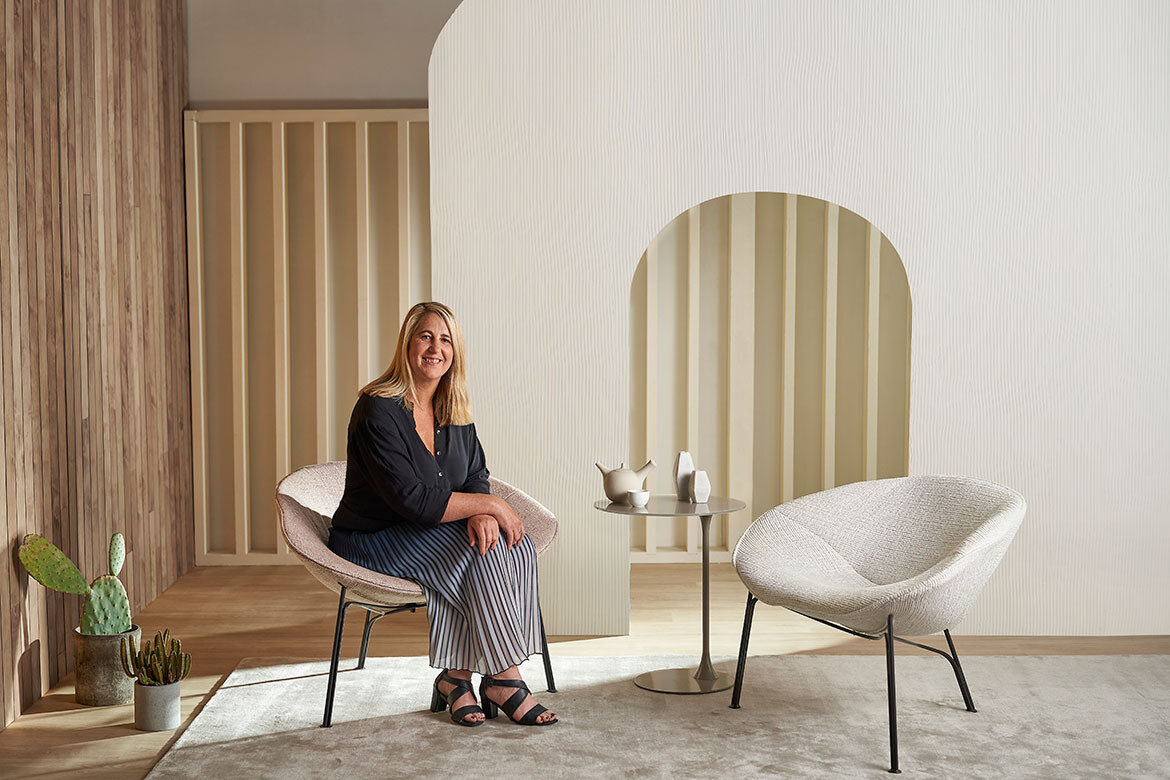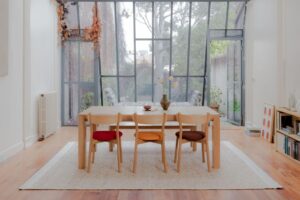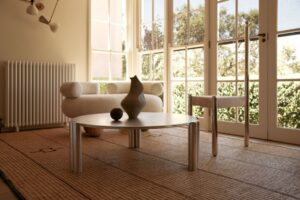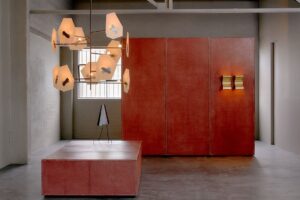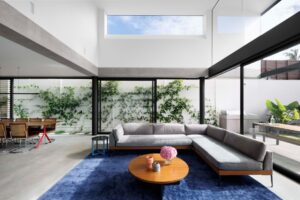Our experience of space is shaped not only by the tangible forms and objects that define it but by the light that infuses it and the emotional resonances it evokes. We balance between the light and the dark, the form and the void, making room for the experiences that infuse our homes with emotion and memory.
Where the ideals of design meet the tactile experience of place is the fulcrum of interior design practice for principal of SSD Studio, Sophie Solomon. A registered architect, her design ethos fuses the deep understanding of structure and urban context with the fine-grain detail of personalised interior palettes.
The historical trajectory of art and design is a rich vein of inspiration. Her design celebrates living and life, the connection outside to nature and the wider community as well as the internal private life of those dwelling within the home.
“Design is about how to enhance that daily process.”
“It is a process of imagining how the space will be used – and every aspect of the space needs to celebrate emotions. Design is about how to enhance that daily process.”
As a student of architecture, Solomon studied the way cathedrals utilised design to touch the human spirit. She found herself profoundly inspired by the way the architecture manipulated light into interiors and created the sense of transcendence.
It was a pivotal moment of recognising how a human can “wonder at a space”. How light suffuses, falls, illuminates and defines the interior environment became the underlying theme of Solomon’s creative process. “I am always thinking about light,” Solomon muses.
When designing she considers first how light can change a space, and then contemplates colour and materials. Her approach is sensitive to the influence of objects and hues on emotions, and how people will experience a space.
“Colour is very important. I tend to use more natural materials and colours in furniture and then colour comes from artwork that is personal to the client.
“I like to design to contrast old and new and low and high,” Solomon says. “I enjoy designing architecturally, so spaces relate to the streetscape, but also stand alone.”
Solomon was drawn to the King Luna Chair by Australian designer Charles Wilson as a feature for a living room, as it embodies the idea of contrast.
“It is so sculptural and has the Modernist form, I love contrasting eclectic furniture, something Mid-Century with something new, for example. I love armchairs that are standalone and sculptural in space but are still comfortable and look like you can sink into them.”
The Luna Chair in a pale-coloured fabric amplifies the play of light, like an invitation to be at ease. Solomon also felt drawn to Luna in a rich burgundy, a striking piece that she imaged could be part of a family of contrasting materials in a living space, perhaps paired with a complementary statement piece such as a grey leather lounge.
“It could be a reading chair in a nook,” she says thoughtfully. “I am working on a project at the moment that has a big, open-plan living space, and I have designed a reading nook for it. It’s a grown-up chair.” The versatility of Luna is also compelling, and the fusion of casual and elegance embodied in the form and fabric.
“I am influenced by the European approach to designing eclectic interiors, blending elegant forms with unusual textures. Modern pieces with vintage, Mid-Century ones. It creates rooms that are beautiful, yet timeless and practical. When I am thinking about materials there is always a consideration of practicality and durability.”
Solomon also incorporates fine-grained details in spatial planning and geometry that create a dynamic connection to the environment and landscape from within a home.
“I am influenced by the European approach to designing eclectic interiors, blending elegant forms with unusual textures.”
“When I am designing a room, I add furniture to the design and think about how people will sit comfortably in the space. I also think about how that space will feel in all the different seasons – I think about how the light enters and how it changes in summer or winter, in the mornings or in the afternoons.
“There is a lot of production of images in architecture but there is now a lot more awareness of good design. It is lovely to have a great image, but how the space feels is really important.”
SSD Studio
ssdstudio.com.au
King Living
kingliving.com
Styling: Lara Hutton
H&MUA: Wayne Chick
Photography: Tim Robinson
Photography Assistant: Corey Madden
Production: Eve Milburn
See which King piece TomMarkHenry designer Jade Nottage picked out as her favourite


